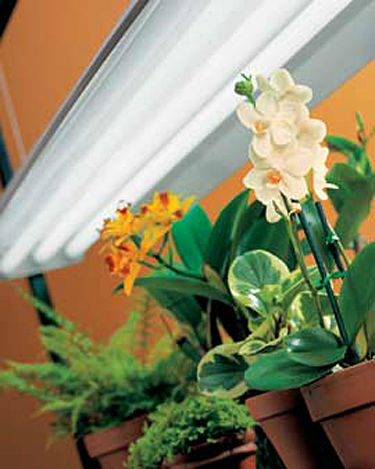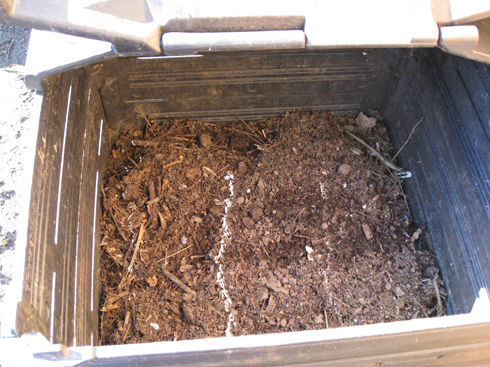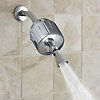A gardener wrote in recently:
“Hi, I am trying to learn how to Organic Garden. My 25 x 5 raised
garden bed has a major grub worm infestation. Every foot I dig, there
are 10 or more grub worms. They destroy any seed I plant. I applied
milky spore all over my raised garden bed. What else should I do? I
would love to be able to grow onions and beets this spring. I will
greatly appreciate any and all suggestions or advise for this matter.”
This is a great question and I can understand your concern. We regularly have green beetle grubs in our compost bin over winter, but the problem nearly disappears once spring rolls around due to their life cycle (they fly off, or we hand pick them out). In an ideal world, we’d all have chickens to let loose on our raised beds between planting fall and spring crops. They’d eliminate the problem for us with no trouble at all. (2013 update – west coasters typically don’t have Japanese beetles, but rather June beetles. Certain solutions that work on Japanese beetles will not work on June beetles).
I’ve actually watched the green beetles fly into the compost bin to lay their young. While these white grubs tend to attack lawns, they have been found in gardens as well. Here is some helpful information that couldn’t be said better than as by Safer Brand, so I’m quoting:
“Natural Predators
What?
Parasitic wasps and parasitic nematodes can be helpful in fighting white grubs.
These insects are great partners to help control white grub infestations in your organic garden.
How?
A parasitic wasp parasitizes a grub and then lays its eggs in the grub. When the eggs hatch, the offspring feed on the grub, killing it if it’s not already dead.
Nematodes will feed on the grubs as well. Hb (Heterorhabditis bacteriophora) nematodes are very effective if they are from a reliable source. (Christy here – you can get these nematodes from Gardens Alive here.)
Lure parasitic wasps to your garden by planting nectar or pollen producing plants. (Christy here – beneficial plants that attract parasitic wasps include letting your cilantro and parsley to go to seed, and planting alyssum, scabiosa, lemon balm, statice, yarrow, and cosmos)
Parasitic wasps can be purchased through a commercial insect breeder. Make sure
if you purchase these insects you have an actual garden insect infestation or you may notice the parasitic wasps migrating to your neighbors yard in search of food.
When?
Parasitic wasps may take a few years to be effective, when they are in sufficient
numbers. The best time to apply nematodes is early September followed by April. (Young grubs are more susceptible to the nematodes then rather than after the winter.)
Most local greenhouses and garden centers can help you determine the right
planting time for nectar and pollen producing plants to ensure that the
pollen and nectar will be available when the wasps arrive.
Environmental Controls
What?
Another control idea pertains to water. Eggs need a moist soil in which to
hatch and newly hatched grubs need water as well. By not watering during mid-summer, eggs will not hatch and grubs will shrivel and die.
Bag traps for Japanese Beetles are a popular way to control this pest in the yard & garden. The combination of Insecticidal Soap and Botanical Pyrethrins will also kill the Japanese Beetles on contact if they are spotted on your plants. (2013 update – research has shown that hanging bag traps often attracts more beetles to your garden. So hang them in your neighbor’s garden instead :-))
How?
Plant those plants that do not attract the insects with a grub stage. Keep
from watering your lawn (and garden soil, if possible) in mid-summer.
Insecticial Soap (Potassium Salts of Fatty Acids) & Pyrethrin
– combined are the organic equivalent of a 1-2 knock down punch.
Japanese Beetles, like other hard bodied insects, are tough bugs to
kill. The soap will penetrate their shell enough to weaken and
dehydrate the insect and allow the pyrethrin to absorb into the insect
and do its job.
Pyrethrin is a powerful nerve agent that will paralyze and kill the insect on
contact. Keep in mind this soap is not like dish detergent; it’s a
base from a blend of natural plant sources and pyrethrin oils which
come from the chrysanthium flower. An effective and organic
combination……. (Christy here again. Keep in mind that these are very strong controls. Even though they are approved for use in organic gardens, they can still be harmful. Be sure to read instructions carefully.)
When?
From mid-July through the earlier part of August, if you can keep from
watering your lawn, it will help prevent grubs from hatching and
surviving.”
I hope this helps you in your journey to a grub-free garden. Keep us posted on your progress.
If anyone else has had success with a particular method, please share it with us here.




Pingback: YouTube: What's Digging Up My Plants? - Gardenerd
In Kenya white grubs are edible.Mostly those big white grubs that are found in compost manure are so delicious and full of protein.Infact people walk around the neighborhood looking for them in compost manures.They are so nutritious I tell you.
A good article on garden and nice information are provided about that so nice to read it and provide still more about it…..Thanks……
I had no idea that I should keep from watering my lawn, and seeing how we’re already close to mid-July, I will keep this in mind. Thanks for the tips on grub control!
Thanks for helping us understand the different types of insects and why they interfere with our gardens/landscaping. We are just getting started with our landscaping so it’s good to have this info before hand. Nothing wrong with a little preventative maintenance.
Thanks for these very informative links. I’ve bookmarked them for future reference.
https://extension.tennessee.edu/publications/Documents/PB946.pdf
Is one reference, but of course not the one I was looking for.
http://www.getridofthings.com/get-rid-of-japanese-beetles.htm
http://insects.about.com/od/insectpests/f/japanese-beetle-traps.htm
While these links deal primarily with Japanese beetles, I’m pretty sure that the theory holds; if you want to use traps, give them to your neighbor 🙂
The problem I have is that I have a plot in a community garden where a, shall we say, mature gardener thinks he’s doing everyone a favor by putting traps in their gardens 🙁
Great site by the way.
Hummmm, I’ll have to look into that. I hadn’t heard about it before. Do you have a link you could share about the research?
Personally, I have been pulling them out of my compost bin by hand and putting them in a bucket, then leaving that out for the birds to enjoy. When we get chickens, they’ll be happy chickens with all the grubs we’ll be giving them.
Have you seen any of the research done on the effectivity of beetle traps? Research done at the University of Tennessee indicates that traps actually attract more beetles than they kill.